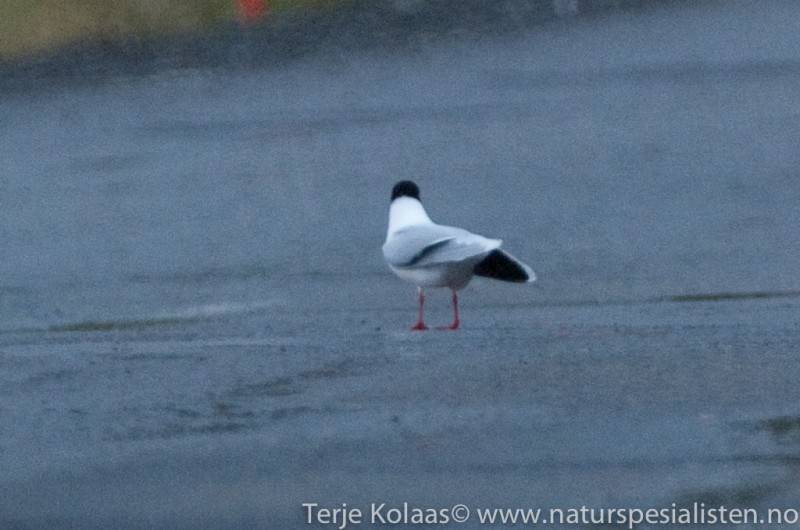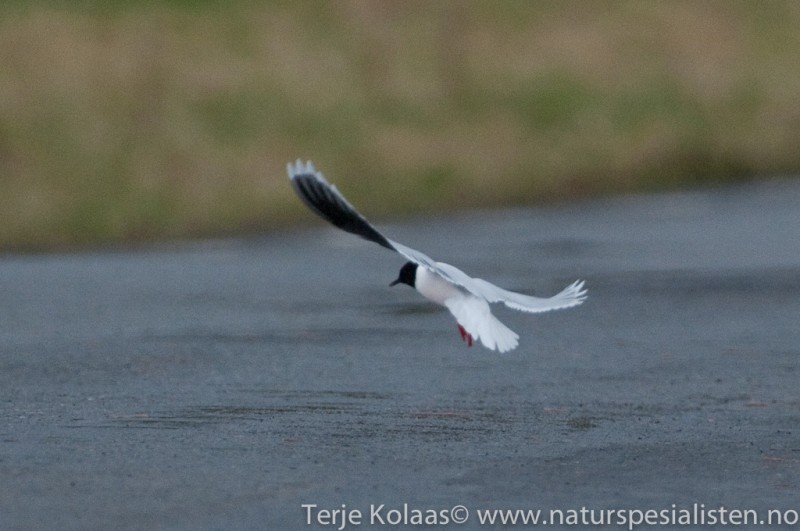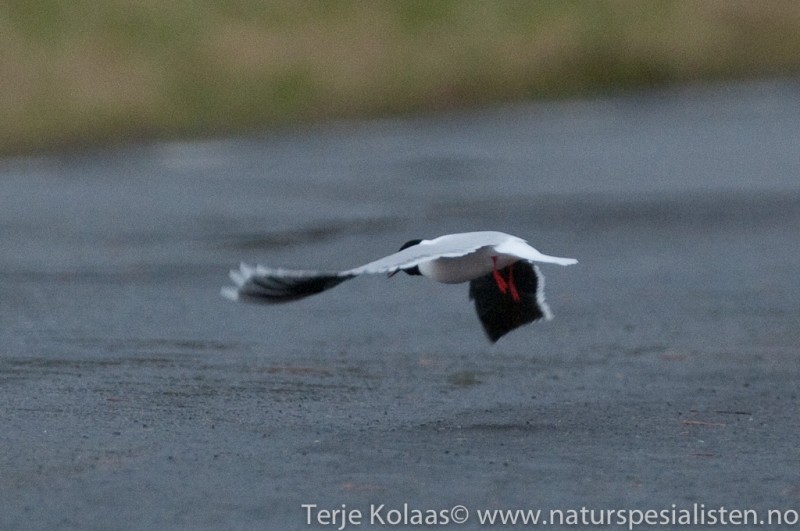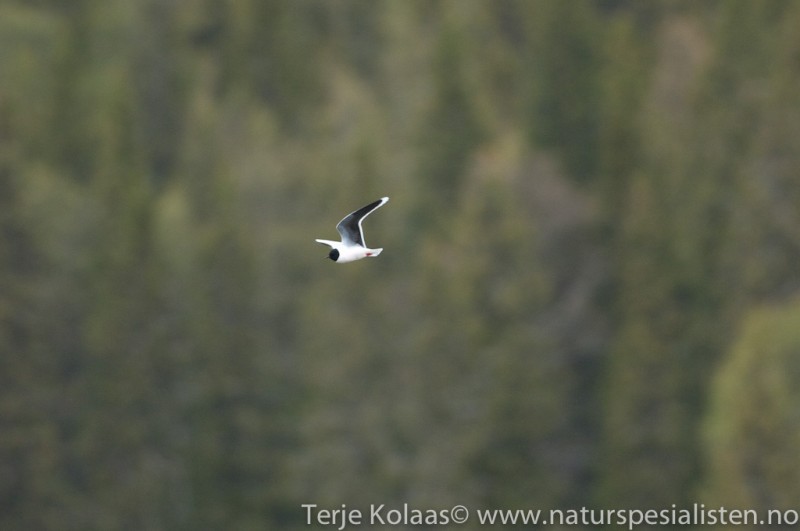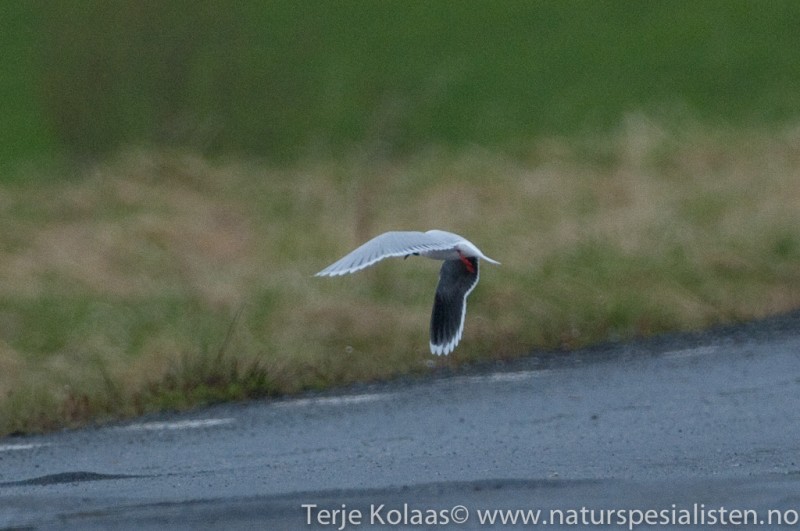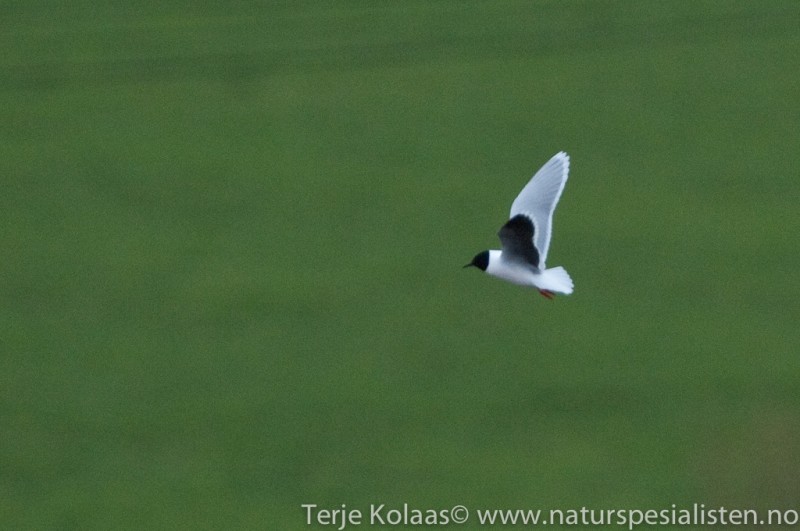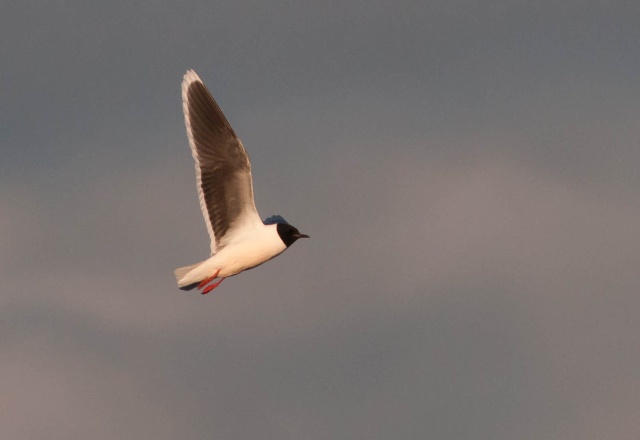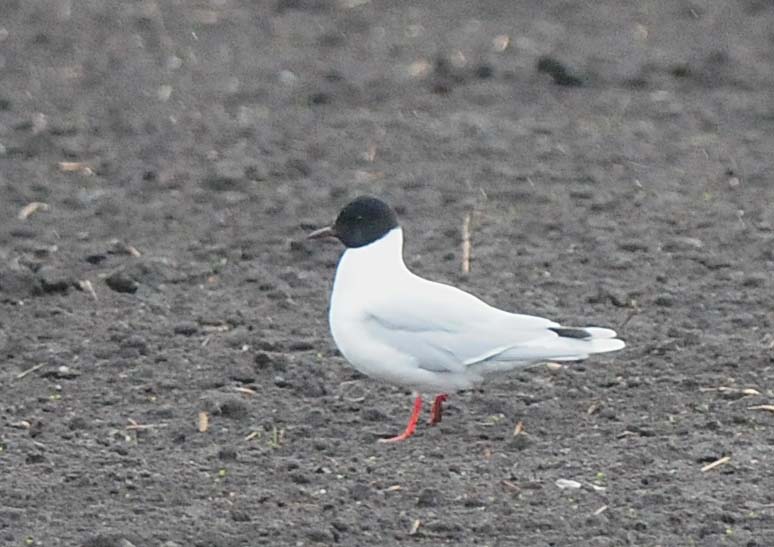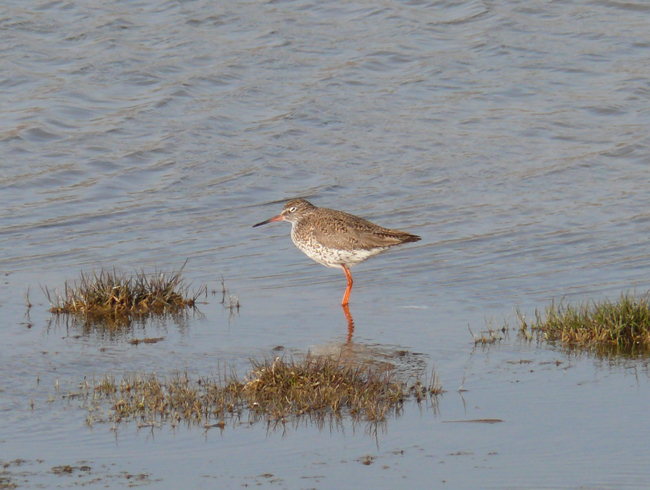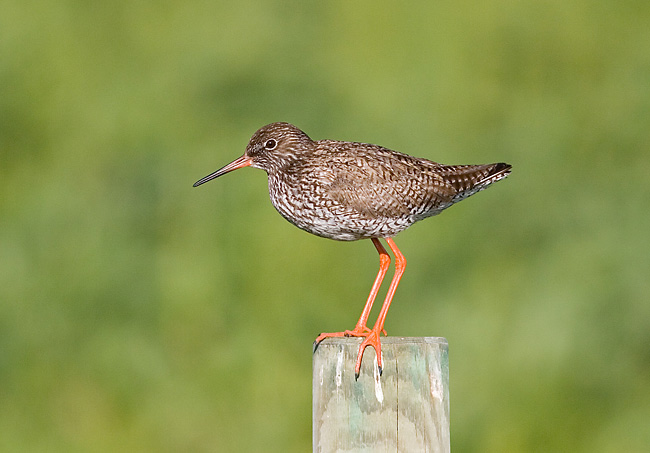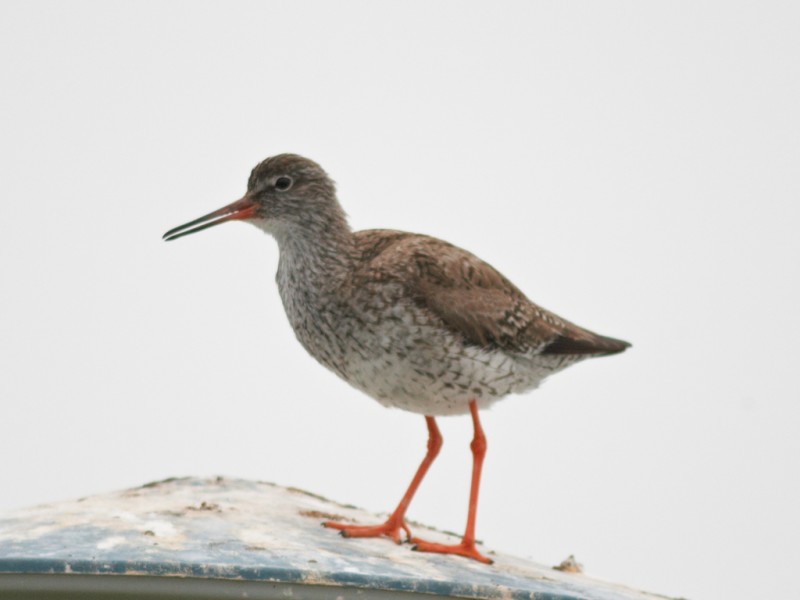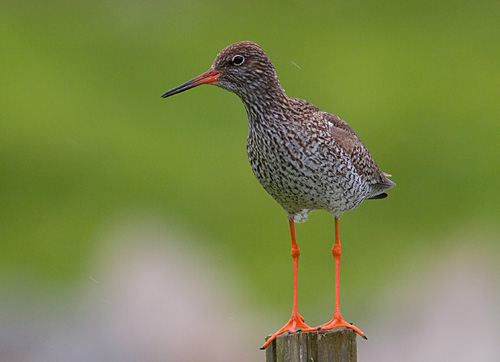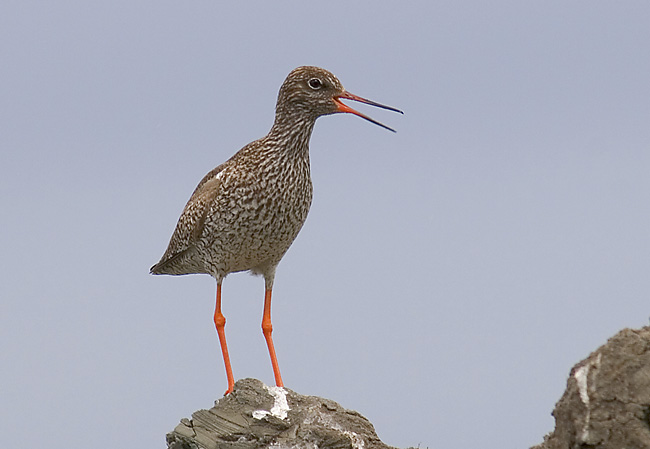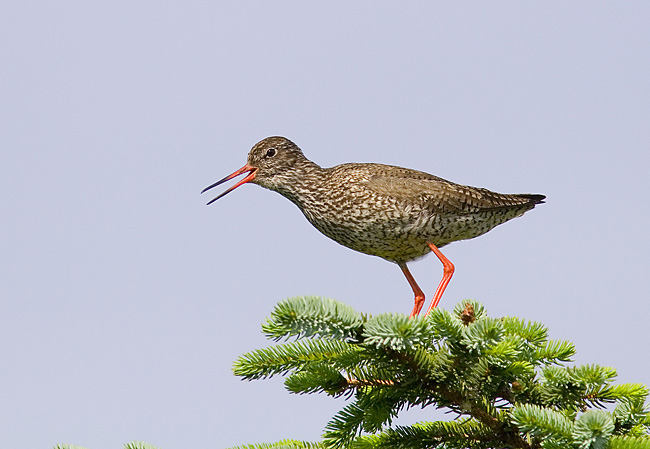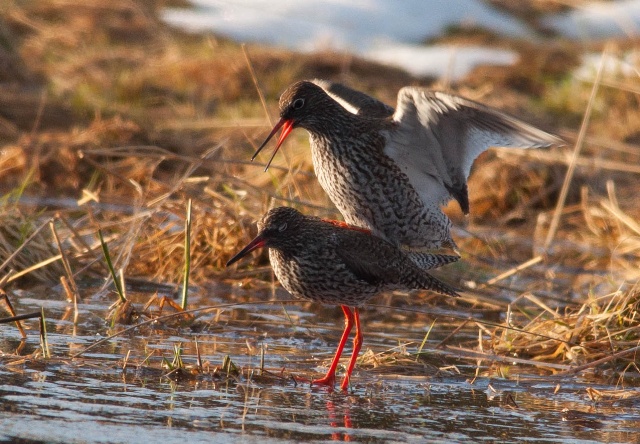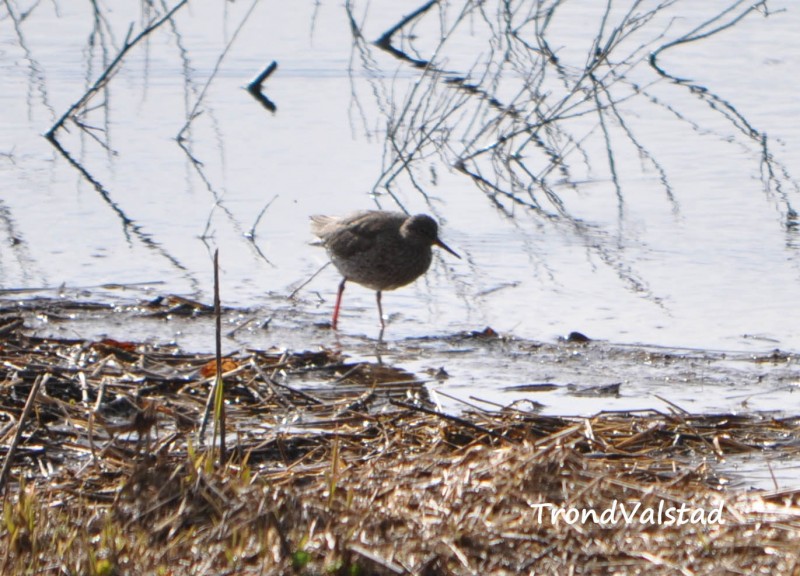Little Gull (Hydrocoloeus minutus)
Redshank (Tringa totanus)
Very small gull with rounded wings and almost tern-like appearance. Underwing black, with broad white trailing edge. Lacks Black-headed Gull's conspicuous white outer primaries. Adult summer plumage with black (not chocolate) hood, that reaches far down on hind-neck. Winter plumage without hood, but with dark cheek-patch and dark cap. Juveniles differs from juvenile Kittiwake in slender body, dark cap, dark patch at trailing base of underwing, faint dark wing-bar and shorter wings. Can, with experience, be identified by fluttering, butterfly-like flight at long distance.
Sound:Repertoire of short, tern-like, hard calls, uttered individually, or in series. E.g. "kep" or "krrk". Also a diagnostic, gull-like, sharp and bouncing "ka-tee,ka-tee,ka-tee", with second syllable rising in pitch.
Contact call:
Distribution:
Wikipedia: map (se also Xeno-canto below)
Ecology:Birdlife ecology
Links:
Observation.org Latest observations
Image search Flickr NB! May give other species
CCSounds:Recorded by Patrick Åberg,http://www.xeno-canto.org ,CC license
Adults differ from most other waders by bright red legs. Large white rectangular patches on secondaries conspicuous in flight in all plumages. Spotted redshanks in winter- or juvenile plumage lacks white wing bars, are more elegant with a more slender bill, and shows a stronger dark eyestripe and white supercilium. Juvenile Redshanks are unevenly, and sparsely spotted below from the legs to the vent, as opposed to the barring of juvenile Spotted Redshanks. Leg colour in juveniles often dull yellowish. Flanks evenly spotted. Winter plumage with brownish upperparts.
Sound:Generally a noisy and loud bird, especially at breeding ground. Most heard is a characteristic "tew-hoo", or "tew-hoo-hoo" with first syllable accentuated. No gap between the syllables like Greenshank, and usually with a marked falling pitch. Song similar to Wood Sandpiper, but with three accented notes in each cycle, not two.
Flight/contact call:
Distribution:
Wikipedia: map (se also Xeno-canto below)
Ecology:Birdlife ecology
Links:
Observation.org Latest observations
Image search Flickr NB! May give other species
CC
 English
English Albanian
Albanian
 Armenian
Armenian
 Bulgarian
Bulgarian
 Catalan
Catalan
 Croatian
Croatian
 Czech
Czech
 Danish
Danish
 Dutch
Dutch
 Finnish
Finnish
 French
French
 Georgian
Georgian
 German
German
 Greek
Greek
 Hungarian
Hungarian
 Italian
Italian
 Latvian
Latvian
 Lithuanian
Lithuanian
 Macedonian
Macedonian
 Norwegian
Norwegian
 Polish
Polish
 Portuguese
Portuguese
 Romanian
Romanian
 Russian
Russian
 Sami : Lule sami
Sami : Lule sami
 Sami : North sami
Sami : North sami
 Sami : South sami
Sami : South sami
 Scientific names
Scientific names
 Serbian
Serbian
 Spanish
Spanish
 Swedish
Swedish
 Ukrainian
Ukrainian


